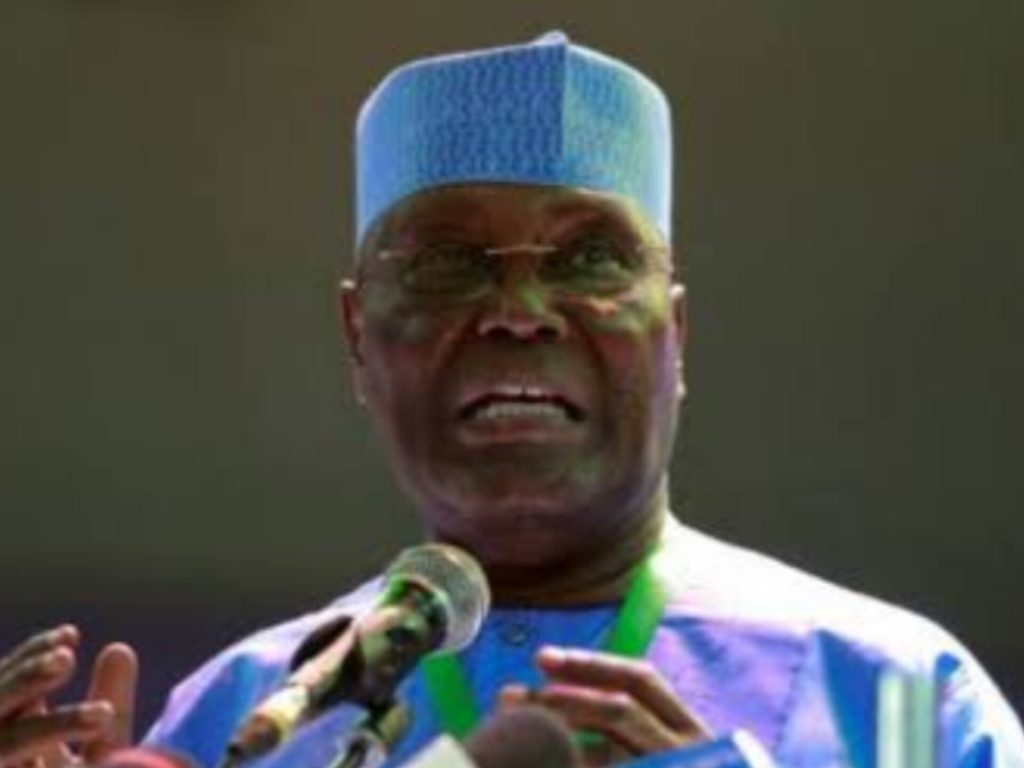T-pain: Atiku Calls Tinubu

In a stinging criticism of President Bola Tinubu’s perceived inaction in the face of the country’s economic woes, former Vice-President Atiku Abubakar labelled the president “T-Pain,” a moniker social media users have been using to jab at Tinubu’s apparent apathy towards the increasing cost of living.
Atiku’s barb came in response to the recent hike in petrol prices, a move that has sparked outrage among Nigerians.
As Nigerians grapple with the impact of inflation on their daily lives, Atiku’s comment struck a chord with many who feel that the current administration has been inept in addressing the country’s economic problems.
Tinubu’s nickname, “T-Pain,” a play on the stage name of an American artist, has become a meme of sorts, with social media users using it to poke fun at his perceived aloofness.
While the government has attempted to distance itself from the petrol price hike, Atiku’s comments suggest that the administration’s approach to fuel subsidy management has been flawed and detrimental to the country’s economy.
With inflation on the rise and no apparent relief in sight, many Nigerians are left wondering if the administration has any plans to alleviate the financial burden on the people.
Atiku’s bold statement echoes the frustrations of many Nigerians who feel that their concerns are falling on deaf ears.
In a country where political discourse is often characterized by mudslinging and name-calling, Atiku’s use of the moniker “T-Pain” can be seen as a clever and biting form of political satire, targeting the apparent tone-deafness of the current administration.
This is not the first time that Tinubu has been criticized for his perceived lack of empathy towards the plight of ordinary Nigerians.
The president’s lavish lifestyle and expensive purchases, including a rumored 150bn jet, have been the subject of much scrutiny and derision on social media.
As Nigerians search for answers and solutions to the country’s economic crisis, the government’s response has been largely seen as inadequate and out of touch with the needs of the people.
With growing calls for transparency and accountability, Tinubu’s administration is under increasing pressure to address the country’s problems head-on.
Atiku’s statement may be seen as an attempt to capitalize on the growing frustration among Nigerians and position himself as a viable alternative to the current administration.
However, only time will tell if his criticism will translate into tangible political gains or if it will be dismissed as just another political ploy.
Atiku’s commentary on the state of the nation serves as a reminder that the political landscape in Nigeria is ever-shifting and highly dynamic.
As the opposition party, the PDP is always on the lookout for ways to weaken the ruling APC and discredit its leadership.
In this regard, Atiku’s criticism of Tinubu and the ruling party can be seen as a calculated move to position himself as a more responsive and compassionate alternative.
The use of the “T-Pain” nickname is a clever play on words that may strike a chord with the public, given the current economic climate.
However, it remains to be seen whether Atiku’s approach will be effective in swaying public opinion.
While his words may resonate with some Nigerians, the fact that he is a former member of the APC and served as Vice-President under President Muhammadu Buhari may be seen as a weakness by some who are looking for a fresh start.
Moreover, the 2023 election is still fresh in people’s minds, and the political wounds from that contest may be slow to heal.
Despite these challenges, Atiku’s willingness to take on the incumbent president and the ruling party is a bold move that may help to revitalize the opposition and give voice to the growing frustration among the people.
In a political environment that is often characterized by apathy and cynicism, it is vital for leaders to demonstrate that they are listening to the concerns of their constituents and are willing to take action to address them.
Whether or not Atiku’s criticism of the administration will be enough to effect change remains to be seen, but his willingness to speak out is a sign that the political winds may be shifting in Nigeria.
The ongoing sparring between Atiku and Tinubu highlights the underlying power struggles and ideological divisions that are at play in Nigerian politics.
The chasm between the ruling party and the opposition is wide, with each side jockeying for control of the narrative and the levers of power.
In this context, it is crucial for Nigerians to remain vigilant and informed, and to hold their leaders accountable for their actions and inactions.
The use of clever wordplay and political satire can be an effective tool in this regard, as it has the potential to cut through the noise and capture the public’s attention.
As the political landscape evolves in Nigeria, it is clear that the battle for the hearts and minds of the people is far from over.
While the current administration may have won the election in 2023, it will need to continue to contend with the opposition and the voices of dissent that are growing louder with each passing day.
Atiku’s criticism of Tinubu’s handling of the economy may be just the beginning of a sustained effort by the opposition to challenge the ruling party and demand a more responsive and accountable government.
References and Citations:
- Channels – Fuel prices: Atiku hits Tinubu over hardship
- Punch – Atiku slams Tinubu over fuel subsidy crisis, calls him Tpain
- DailyTrust – T – pain, Atiku hits Tinubu over fuel price hike






